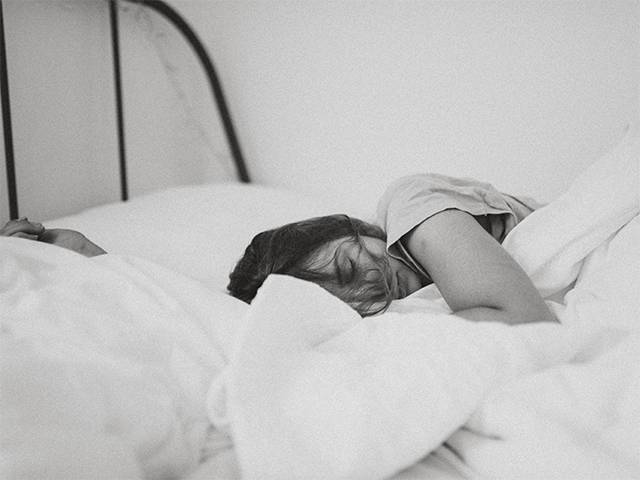7 Reasons Why You May Not Be Sleeping Well

Not being able to sleep is frustrating. You know you need to sleep. Your body is telling you that you need to sleep. But for some reason, you just can't drift off into dreamland.
If this sounds like you, you're not alone. Everyone experiences sleep problems from time to time. However, some have it worse than others, and the adverse effects of sleep deprivation can be detrimental to many areas of your life.
Fortunately, many remedies exist to help you achieve a more peaceful slumber.
If your bouts of sleeplessness are affecting your life, read on to explore seven reasons why you may not be sleeping well and what you can do about it.
1. You drink caffeine late in the day
We all know that caffeine is a stimulant. That's why we drink it"to wake up and stay energised throughout the day.
But don't just sip a mug if you're feeling drowsy in the afternoon"coffee's effects can last up to 8 hours in your system. So if you drink a cup of coffee mid-afternoon and onwards, chances are you're still going to be feeling the effects of the caffeine when you lie down to sleep at 11:00 PM.
If better sleep is your goal, you'll need to limit your caffeine intake or have it in the mornings only. This way, you'll enjoy the kick while granting your body enough time to pass the caffeine before bedtime.
2. You have a poor sleep routine
Just like our bodies need time to wind down before bed, so too do our minds. Creating a bedtime routine will cue your body that it's time to sleep and make it easier for you to drift off when you finally lie down.
A good bedtime routine might include reading a book, writing in a journal, or taking a bath"whatever calming activities work for you. If you're the type of person to sleep at random hours, it might be time to start setting a regular sleep schedule to train your body when it's time to rest.
3. You keep your bedroom too bright
When it starts to get dark outside, our bodies begin to produce melatonin"a hormone that's responsible for controlling your circadian rhythm.
However, if your bedroom is too brightly lit, you'll inhibit your body from producing melatonin, which consequently makes you feel less sleepy.
To sleep better, make sure to dim the lights in your bedroom an hour or so before bedtime and avoid using gadgets (TVs, laptops, smartphones, to name a few). These devices emit blue light that inhibits melatonin production.
If you must use a gadget, use a blue light filter or download an app that dims the blue light on your device.
4. You eat too close to bedtime
Craved a midnight snack so much you cooked yourself a large meal? Worked late into the wee hours and whipped up dinner late at night?
Either way, you're not doing your sleep any favours by eating close to bedtime.
Partaking in a meal raises your body temperature and metabolism, which is quite the opposite of what you want. This is especially true if you're eating something hearty like steak or a large bowl of pasta.
You should aim to finish dinner at least 2-3 hours before bedtime. If you get hungry before bedtime, try eating a light snack like yogurt or a piece of fruit instead of a full meal. This way, you'll feel less hungry but still be able to sleep peacefully.
5. You have an undiagnosed sleep condition
While many lifestyle factors can influence your inability to sleep, sometimes, sleeplessness is caused by an underlying sleep condition.
One such condition is sleep apnea, which is characterised by pauses in breathing or shallow breaths while you sleep. This can cause you to wake up feeling groggy and unrested, as well as increase your risk of developing heart disease.
If you suspect you have sleep apnea or another sleep disorder, let a doctor know about it. You may need to start using a CPAP machine paired with a CPAP mask from CPAP Direct to help you sleep soundly at night despite your sleep disorder.
6. You have unresolved stress in your life
Everyone experiences stress; it's one of life's biggest inevitabilities.
But if you're constantly worrying about things like work, money, or your personal life, this stress can easily seep into your bedroom and make it harder for you to sleep.
Try to resolve any outstanding issues before going to bed so you can wake up feeling refreshed and ready to take on the day. If you find it difficult to let go of your stress, consider meditating or practising deep breathing exercises to put your mind into a more restful state. You'll be surprised at how much better you sleep when your mind is at ease.
7. Your environment isn't conducive to sleep
Your bedroom should be a haven for sleep"a place where you can go to relax and unwind after a long day.
Unfortunately, distractions can easily sneak into your bedroom and disrupt your sleep.
To create a more conducive environment for sleep, make sure to keep your room dark, quiet, and cool. If outside noise is preventing you from sleeping, try using a white noise machine or earplugs to drown out the sound.
If your mattress is lumpy and uncomfortable, consider getting a better one. A good-quality mattress is a worthy investment that can make a world of difference in your sleep quality.
Image credit Unsplash
MORE





